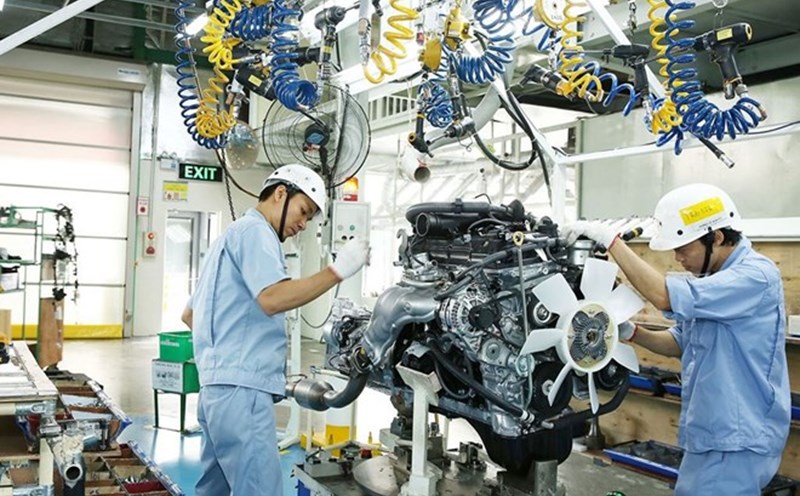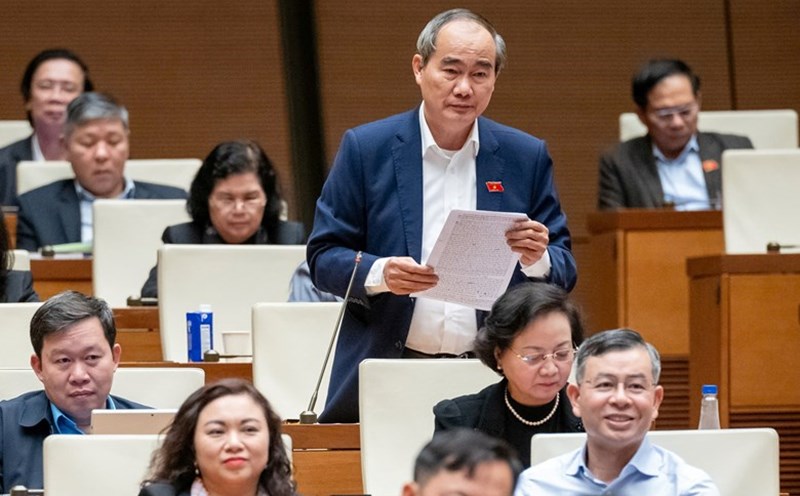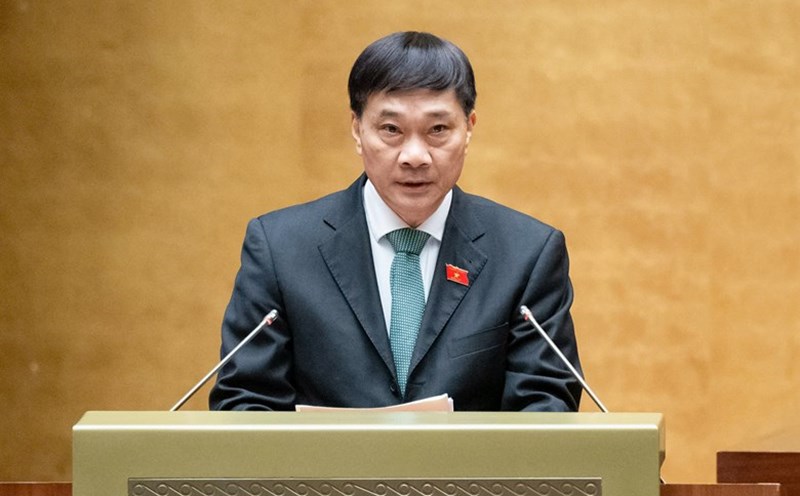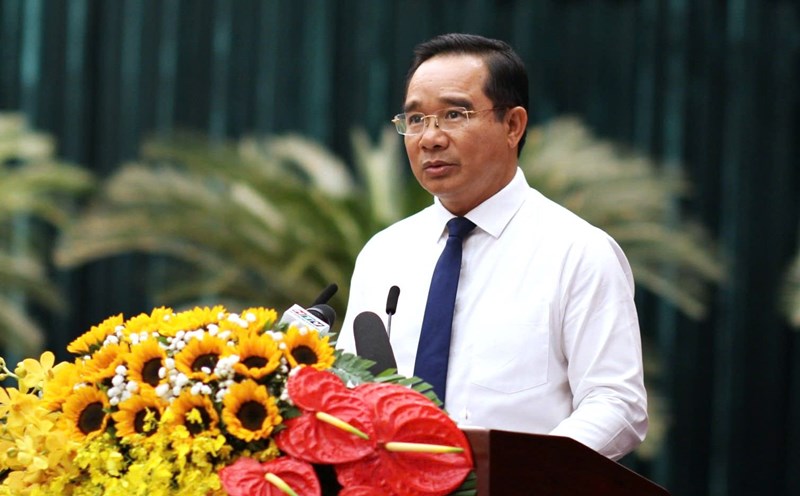Proposal to prioritize the mechanism of ordering and assigning tasks
On the afternoon of February 15, the National Assembly discussed in the hall the Investment Policy for the Lao Cai - Hanoi - Hai Phong railway project; Draft Resolution on piloting a number of specific mechanisms and policies, especially to develop the urban railway network system in Hanoi City and Ho Chi Minh City.
Speaking in the hall, delegate Hoang Van Cuong - Hanoi National Assembly Delegation assessed that the Lao Cai - Hanoi - Hai Phong railway project has the prospect of bringing high economic efficiency.
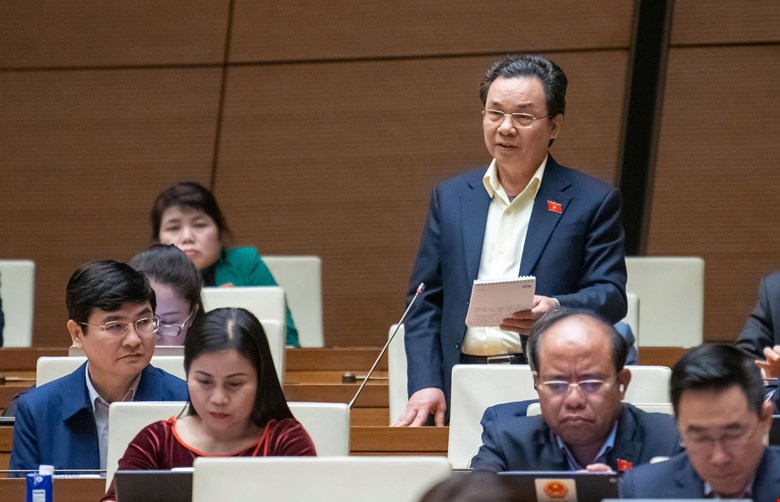
However, to make the project highly effective in technology transfer, Mr. Cuong suggested that in the Resolution, it is necessary to prioritize ordering and assign tasks to domestic enterprises in mastering 3 areas: Road construction, bridges, tunnels; Production of railways and carriages.
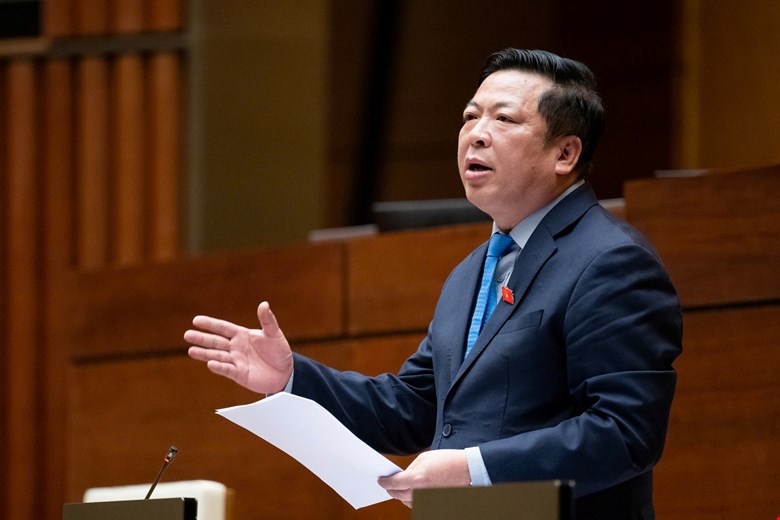
"At the meeting with the Prime Minister, businesses all affirmed that they can do it if the Government places an order. If we place orders for domestic enterprises, all public investment capital will rotate domestically to create growth, not fall abroad. More importantly, if we invest abroad, we will never have a railway industry" - Mr. Cuong said and noted that with the ordering mechanism, the Government must have commitments and policies to help businesses feel secure in investing in equipment, purchasing technology, and creating products with a large competitive market.
To ensure the project's progress as expected by the Prime Minister, delegate Sung A Lenh - National Assembly Delegation of Lao Cai province said that the National Assembly and the Government should consider allowing the People's Committees of provinces to proactively decide on support measures and support levels for each specific case according to current regulations of law.
At the same time, it is allowed the Provincial People's Committee to immediately carry out planning work related to the investment and construction project of the Lao Cai - Hanoi - Hai Phong railway line according to the urban and rural planning law No. 47/2024.
Project investment cost is lower than many countries
Speaking about the contents related to the Lao Cai - Hanoi - Hai Phong railway project, Minister of Transport Tran Hong Minh said that the project route has been studied and selected according to the principle of the shortest and most direct route, reducing works and volume on the route, and at the same time working directly with 9 localities to agree on route options.
Regarding works on the route, the design must ensure load-bearing capacity, within the design standards of the country and the world; Intersections at different levels with roads have been studied and mentioned; Limit environmental impacts... "When there are enough detailed survey and design data, we will study and adjust to be more optimal" - Mr. Minh said.
Regarding the content of the project investment level that many National Assembly deputies consider higher than the world level, according to the Minister of Transport, the total investment is approximately 8.3 billion USD for the entire route, however, including site clearance, construction costs, equipment costs and other costs.
"If we deduct site clearance costs and other costs, the Lao Cai - Hanoi - Hai Phong railway project is currently at 15.96 million USD/km. Refer to countries around the world, compared with the Ngoc Khe - Mac Han railway (China) with an investment rate of 17.95 million USD, or the Boten - Vientiane railway (Laos) with 16.77 million USD/km.
Our total investment is slightly lower, which is relatively reasonable compared to the region" - Mr. Minh emphasized.
Regarding capital sources, according to the Minister of Transport, to be proactive and flexible in capital use, the report mentioned the use of domestic capital sources, foreign loans and other legal capital sources.
The Minister of Transport affirmed that he had fully recorded the comments of the delegates and the drafting committee would seriously revise and review to complete the project investment policy.

